The 2019 Project Learning Tree International Coordinators’ Conference was held May 6-9 in Little Rock, Arkansas. Now in its 33rd year, our annual conference provides professional development, networking, and information about new initiatives to PLT’s Coordinators and partners who deliver high-quality environmental education programming to educators across the country and internationally, too. Over 100 participants from the United States, Canada, Mexico, Chile, and Japan attended.
PLT in a Changing World
The overall theme for the conference was PLT in a Changing World, with a strong focus on how to position PLT within the changing field of education. Over 40 individuals helped to lead a wide range of general, concurrent, and show-and-tell sessions. The Arkansas PLT program, led by the Arkansas Forestry Association, helped plan a variety of fun, off-site educational events and pre- and post-conference tours.
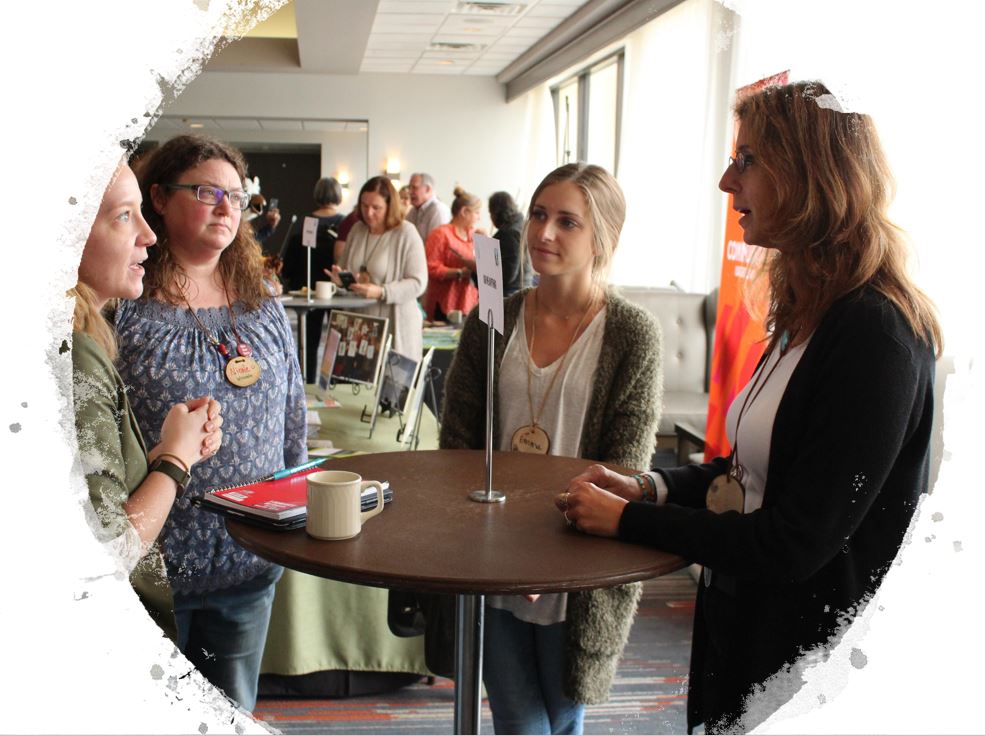
Melina Bellows, SFI/PLT Chief Education Officer (right) chats with Jacey Tosh from Texas, Nicole Filizetti from Wisconsin, and Emma Winterhalter from Mississippi
Melina Bellows, SFI’s new Chief Education Officer, helped kick off the conference by sharing her excitement in getting to know PLT’s impressive and dynamic network. She said, “one of my ‘top ten’s’ in learning about PLT is that the PD [professional development] provided by the PLT network is experiential and life changing.” She asked the audience, “How can we make PLT easy, accessible, and fun for formal and non-formal educators everywhere to use?”
Esther Cowles, Senior Director of Education Programs, went on to engage participants for their feedback on two ideas for building on PLT’s strong foundation to grow PLT’s reach and relevance:
- Teacher Ambassadors to recruit and support a formal educator and school district strategy, and
- additional Online Content and a Professional Learning Community to support active use of PLT.
“The PLT network is passionate about our work and it’s always good to connect with them and hear their guidance on how we can continue to make PLT even stronger,” said Kathy Abusow, President and CEO of the Sustainable Forestry Initiative, who participated throughout the event. PLT is an initiative of SFI.
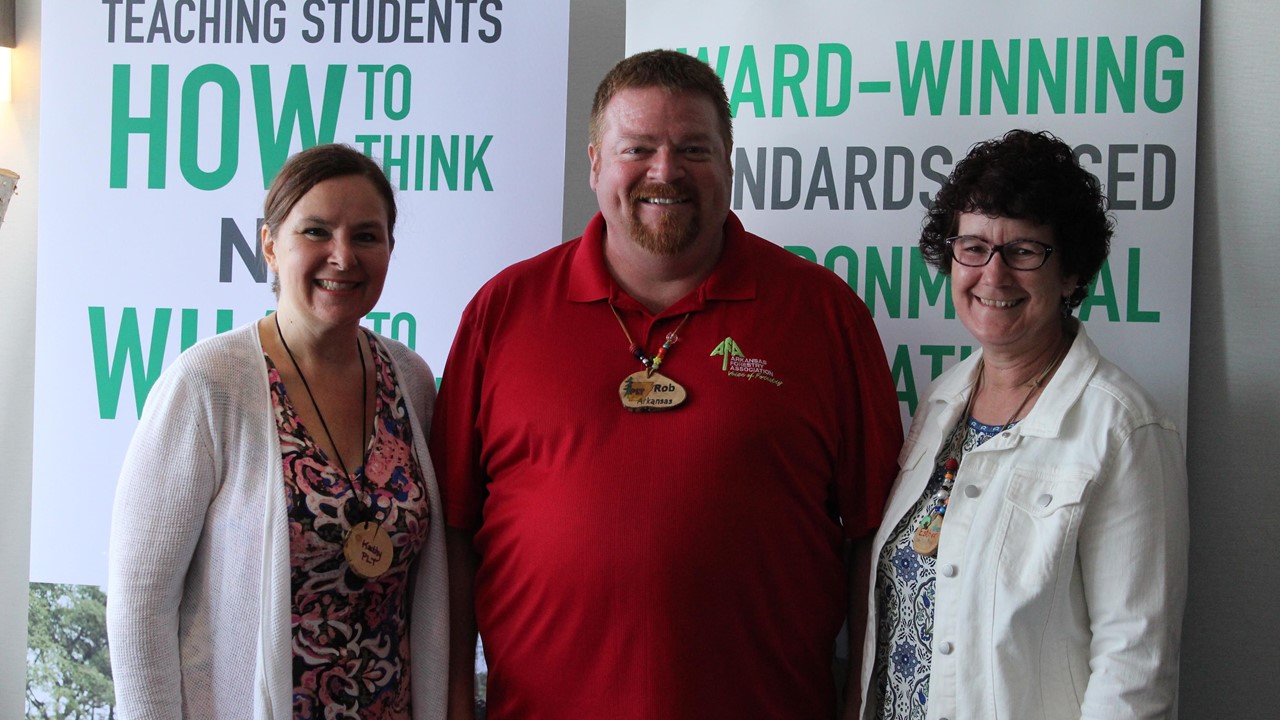
Kathy Abusow, SFI President and CEO, Rob Beadel, Arkansas PLT State Coordinator, and Esther Cowles, SFI/PLT Senior Director, Education Programs
More Highlights from the PLT Conference
Other speakers shared their organization’s work in a changing world. Tinelle Bustam, Acting Director for Conservation Education with the U.S. Forest Service said, “We have to be ready to change. Transitions provide opportunities to innovate and do new things. There is stronger public acceptance and support for environmental education around climate change than ever before.”
Judy Braus, Executive Director of the North American Association for Environmental Education, described NAAEE’s eeWORKS initiative to demonstrate the impact and value of environmental education from research. She said “We know what we are doing works and changes lives. Anecdotes are the passion and stories. We’re coupling those with the evidence to communicate, market and sell the positive outcomes.”
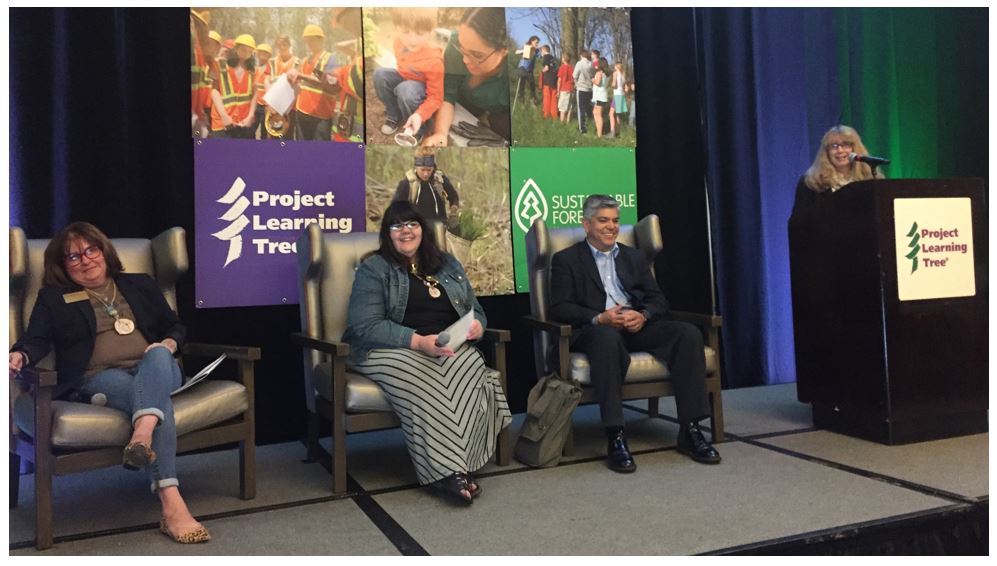 Michele Snyder, Arkansas Department of Education Public School Program Advisor, Laura Downey, Kansas PLT State Coordinator, Daniel Benavidez, Zuni New Mexico Public School District Superintendent, and Judy Braus, NAAEE Executive Director
Michele Snyder, Arkansas Department of Education Public School Program Advisor, Laura Downey, Kansas PLT State Coordinator, Daniel Benavidez, Zuni New Mexico Public School District Superintendent, and Judy Braus, NAAEE Executive Director
We were also inspired by this panel of education leaders who gave their perspectives on the role of environmental education in the formal school setting and how best to position PLT to meet school needs.
Daniel Benavidez, Zuni New Mexico Public School District Superintendent, said “Outdoor education and project-based learning helps connect kids and families to their community, and this is such an important value in my school district.”
Laura Downey, Executive Director of Kansas Association for Conservation and Environmental Education and Kansas PLT State Coordinator, recommended, “Get teachers together, host Green Gatherings, and give them a place to work together, to design together, and to inspire each other. Start with the teachers that are passionate. Help them find somebody that feels the same way that they do. Don’t come in with a plan of what you want. They know better than we do what is possible.”
Michele Snyder, Arkansas Department of Education Public School Program Advisor, noted, “PLT has the materials teachers are looking for to address the phenomena and cross-cutting concepts for three-dimensional teaching and learning.”
Keynote by Richard Louv
We welcomed Richard Louv, a journalist, author of nine books, and co-founder of the Children & Nature Network, as our keynote speaker. Louv is best known for “nature-deficit disorder,” a concept he first introduced in Last Child in the Woods. He spoke about the importance of teachers who take their students outside to learn and pediatricians who prescribe exposure to nature for health.
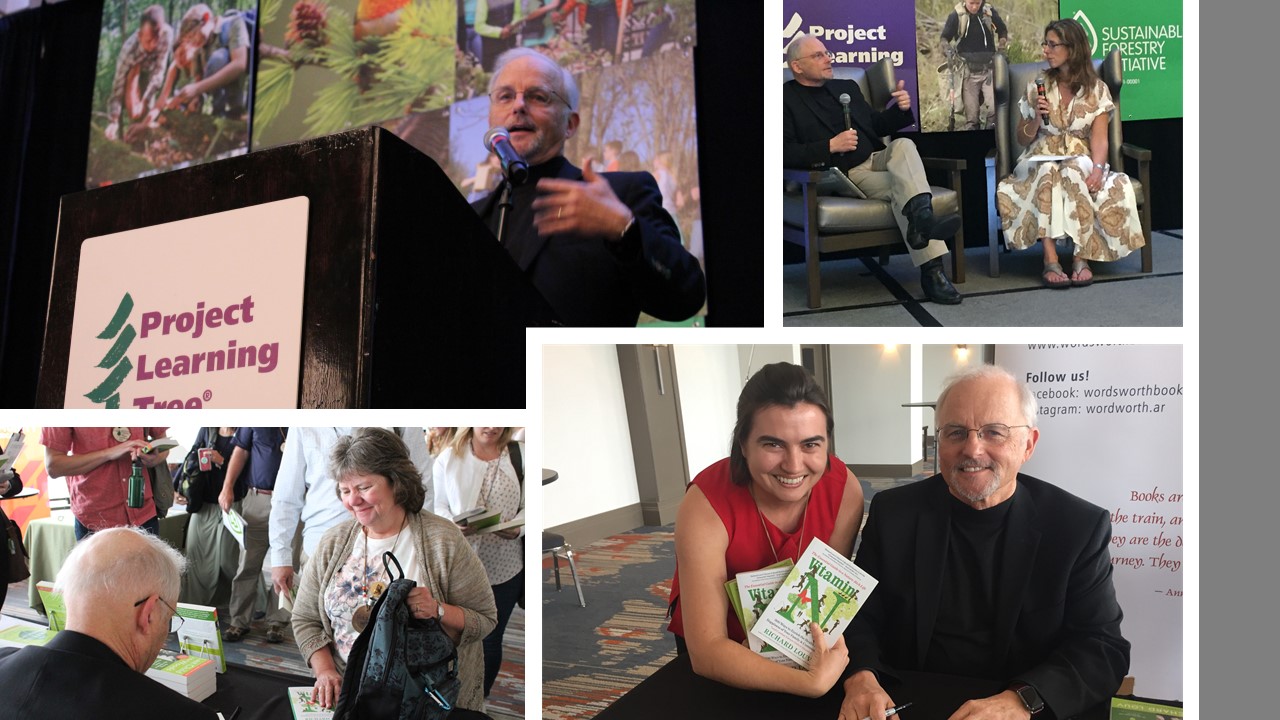
Richard Louv pictured with Melina Bellows, Hazel Scharosh from Wyoming, and Chanda Cooper from South Carolina
In describing his new book Our Wild Calling: How Connecting with Animals can Transform Our Lives – and Save Theirs to be released in November, Louv said, “I don’t think we will fully realize our responsibilities to nature unless we realize it’s a part of who we are. Once we think of it that way, nature will no longer be thought of as a ‘nice to have’. It’s not a ‘nice to have’, it’s fundamental to who we are.”
New PLT K-8 Activities
Jackie Stallard, Director of Curriculum and Partnerships, shared drafts of five new PLT K-8 activities that have been pilot tested this spring by nearly 50 teachers in 30 states.
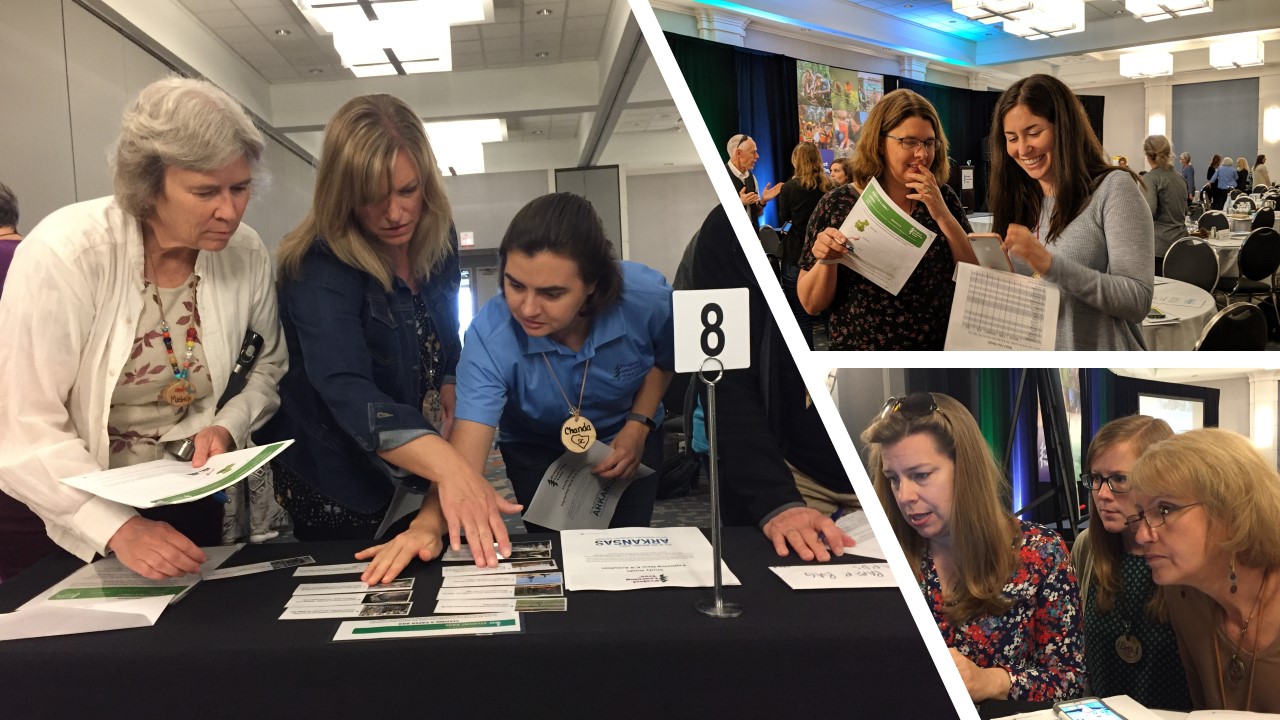
Conference participants eagerly rotated to different stations to explore aspects of the new activities that focus on the following topics:
- Outdoor Rx – Benefits of being outside
- Livable Communities – Urban forestry
- What’s in a Label? – Forest product certification
- How Green Is Wood? – Lifecycle analysis of building materials
- Environmental Justice for All – Community equity
Professional Development and Networking
Many other sessions and networking events provided opportunities for members of the PLT network to learn from each other to enhance their state programs.

Here are some more highlights:
- A half-day pre-conference session focused on how to design inclusive professional development and in other sessions, participants learned authentically inclusive facilitation skills.
- Opportunities for building relations with Indigenous communities were identified as well as approaches to meaningfully support Indigenous learners in their education and career journeys.
- Strategies for preparing students for green careers included a new PLT curriculum unit Green Jobs in Green Spaces: Exploring Forest Careers that will be published later this year. Other sessions focused on discussions around engaging green building and sustainability professionals in conjunction with green schools.
- Participants shared and brainstormed ways to recruit, train, and engage facilitators in their state to ensure facilitators have the tools, knowledge, resources, and commitment to lead high-quality in-person workshops.
- Leaders from Boy Scouts of America and 4-H shared how new PLT correlations to scout merit badges and 4-H youth life skills can help PLT state programs partner with youth groups.
- Several sessions also focused on effective communications to reach diverse audiences and participants worked together to create actionable marketing plans.
Off-Site Educational Events
Thanks to our Arkansas PLT hosts, we learned about natural flora and fauna from the Arkansas Game and Fish Commission on a visit to the Witt Stephens Jr. Central Arkansas Nature Center. We invited the Arkansas Teacher of the Year, Stacey McAdoo, to join our fun Arkansas fish fry dinner, and some talented PLT Coordinators got creative decorating the table coverings!
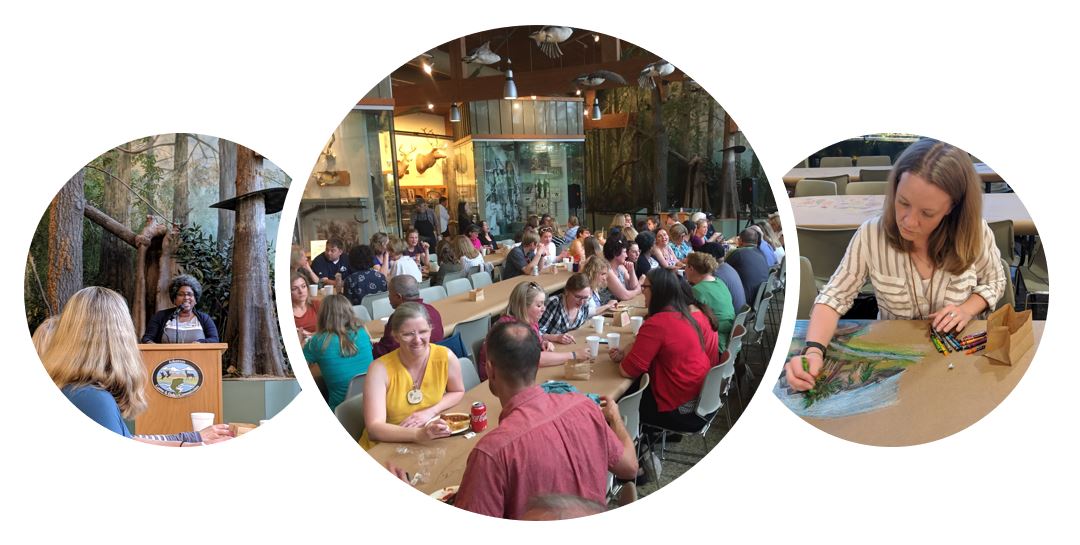 Stacey McAdoo, Arkansas Teacher of the Year (left); Jacey Tosh with Texas A&M Forest Service (right)
Stacey McAdoo, Arkansas Teacher of the Year (left); Jacey Tosh with Texas A&M Forest Service (right)
The following day we enjoyed a guided tour of Green Bay Packaging Inc.’s sawmill and pulp and containerboard mill. We learned how sustainably managed forests support the production of dimensional pine lumber and Kraft paper.
“This was such a cool field trip! I loved learning how stuff gets made,” said Alex Porpora, Utah PLT State Coordinator.
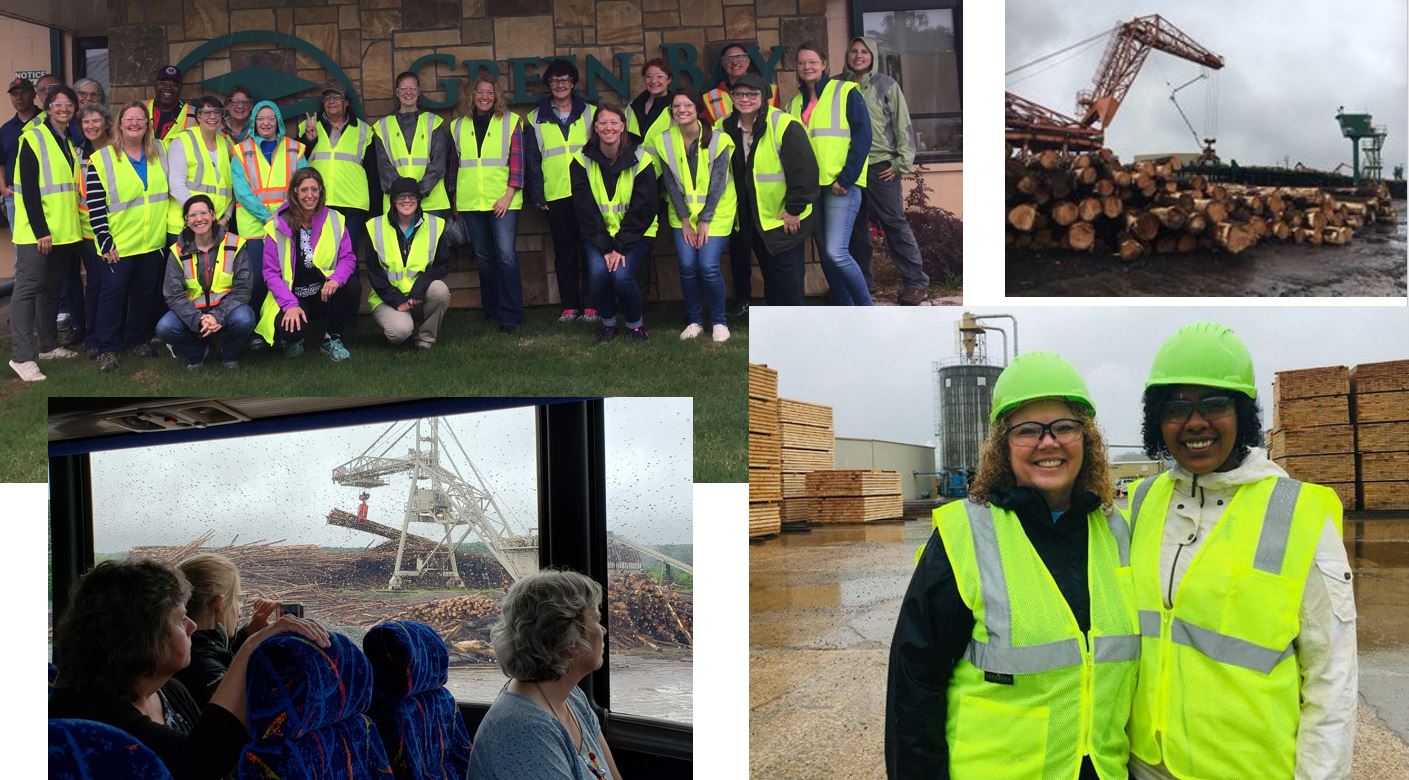
Pictured bottom right are Denise Buck and Nicole George from Washington state
Awards and Recognition
Always a highlight at our conference, we were honored to recognize the following individuals and organizations this year.
“Project Learning Tree has thrived for over 40 years because of the passion and commitment of the people who bring it to life every day in classrooms, nature centers, parks…pretty much anywhere children can be connected to nature,” said Esther Cowles. “We are indebted to them for using PLT to change the lives of children and adults alike, and welcome the chance to celebrate their great work.”
Leaders in Education
PLT’s Leadership in Education Award recognizes individuals and organizations who make significant contributions to advance PLT programs and initiatives at the state or regional level. The awards, which happened to coincide this year with Teacher Appreciation Week, May 6-10, were given to a classroom teacher and a natural resource professional who have taken very different paths to engage the next generation.
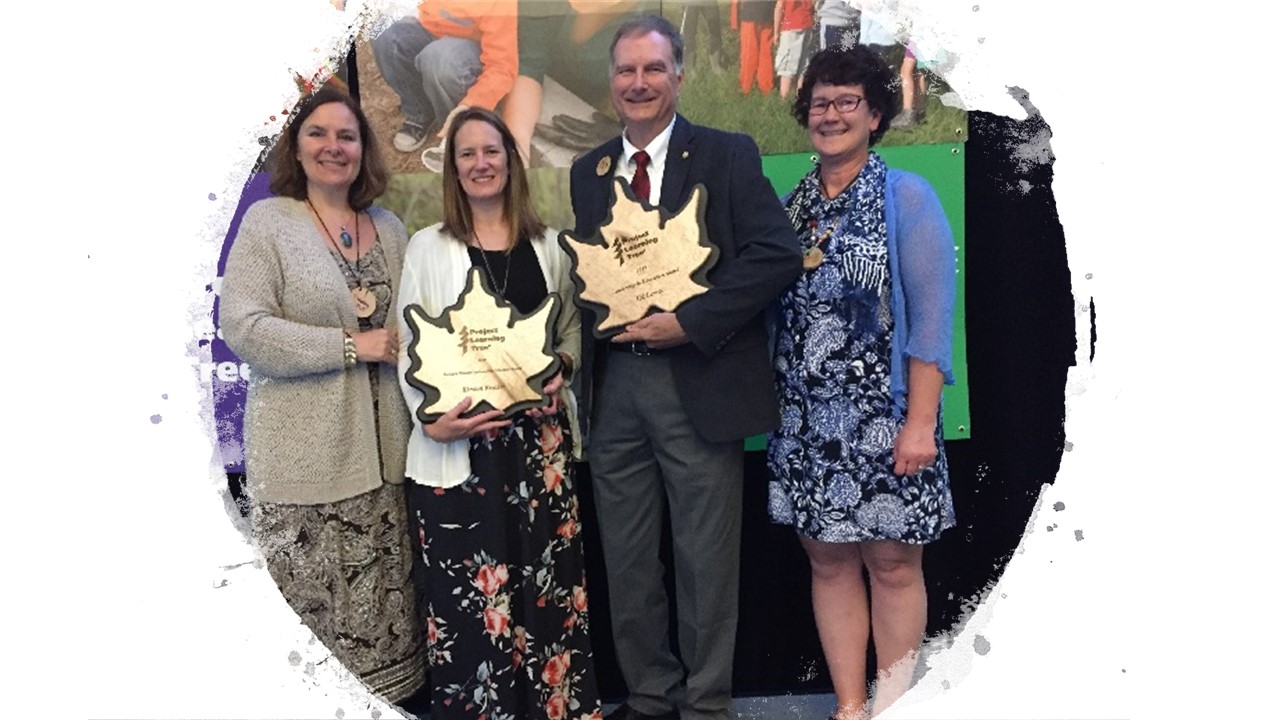
Award winners Kirsten Brazier from Florida and Ed Lewis from Alabama are pictured with SFI/PLT staff (left) Kathy Abusow based in Ottawa, Canada, and (right) Esther Cowles based in Washington, D.C.
- Kirsten Brazier is a first-grade teacher at Crawfordville Elementary School in Florida, a Title 1 school where more than 40% of the students are economically disadvantaged. She serves as the school’s PLT coordinator and reaches across all grades with a variety of PLT activities.
- Ed Lewis, a procurement forester for Westrock, one of the world’s largest paper and packaging companies, is based in Alabama and has used the PLT curriculum to teach others about sustainable forestry throughout his 40-year career. Read more.
Gold Stars
Since 1995, National PLT has presented Gold Stars to outstanding PLT Coordinators and other individuals for their years of exemplary service to PLT. We are an immeasurably better organization because of their extraordinary personal and professional qualities, commitment and dedication to PLT, energy and expertise.
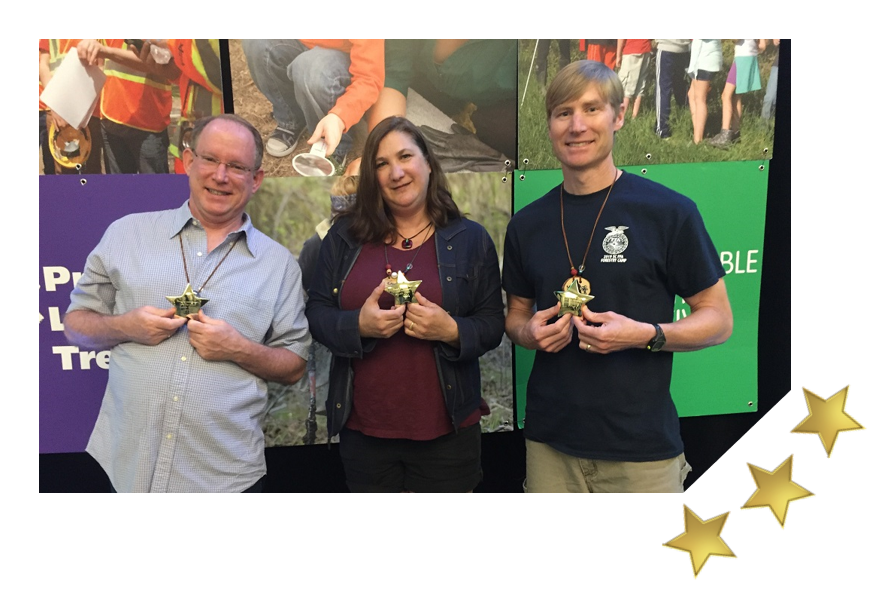
Gold Star winners Drew Burnett from Washington, D.C., Laura Duffey from Minnesota, and Matt Schnabel from South Carolina
This year, Gold Stars were awarded to:
- Drew Burnett, member of PLT’s Education Operating Committee. Drew retired recently from a long and distinguished career in public service working for the EPA, U.S. Forest Service, and U.S. Fish and Wildlife Service. He has also worked for the Peace Corps and World Bank. Since PLT’s earliest beginnings 43 years ago, Drew has worked to guide, advise, and promote our work. Wherever Drew has worked, he has made significant impact on the field of environmental education.
- Laura Duffey, Education Specialist with the Division of Forestry at the Minnesota Department of Natural Resources. Laura has served as the Minnesota PLT Coordinator since 2002. Over the years, she has been an innovator in delivering PLT to formal and non-formal educators and all types of youth group leaders. She partners actively with other organizations, attends to audience needs, and works closely with her facilitators. Under Laura’s leadership, Minnesota PLT consistently trains 500-1,000 educators each year.
- Matt Schnabel, Environmental Education Coordinator with the South Carolina Forestry Commission. Matt is a highly motivated, enthusiastic, self-starting and responsive coordinator who has developed strong relationships with a diverse set of volunteers, professionals and leaders in education, forestry and environmental science.
Thank You to Our Sponsors
We gratefully recognize and thank our conference sponsors: NAAEE, ee360, the Arkansas Game & Fish Commission, the U.S. Forest Service, Green Bay Packaging Inc., Hancock Timber Resource Group, The Center for Green Schools at USGBC, Albert I. Pierce Foundation, Potlatch Deltic, Arkansas Timber Producers Association, Arkansas Urban Forestry Council, Air Quality Egg, Ouachita Society of American Foresters, and many others.
The quality of PLT’s conference is enriched by their generous support.
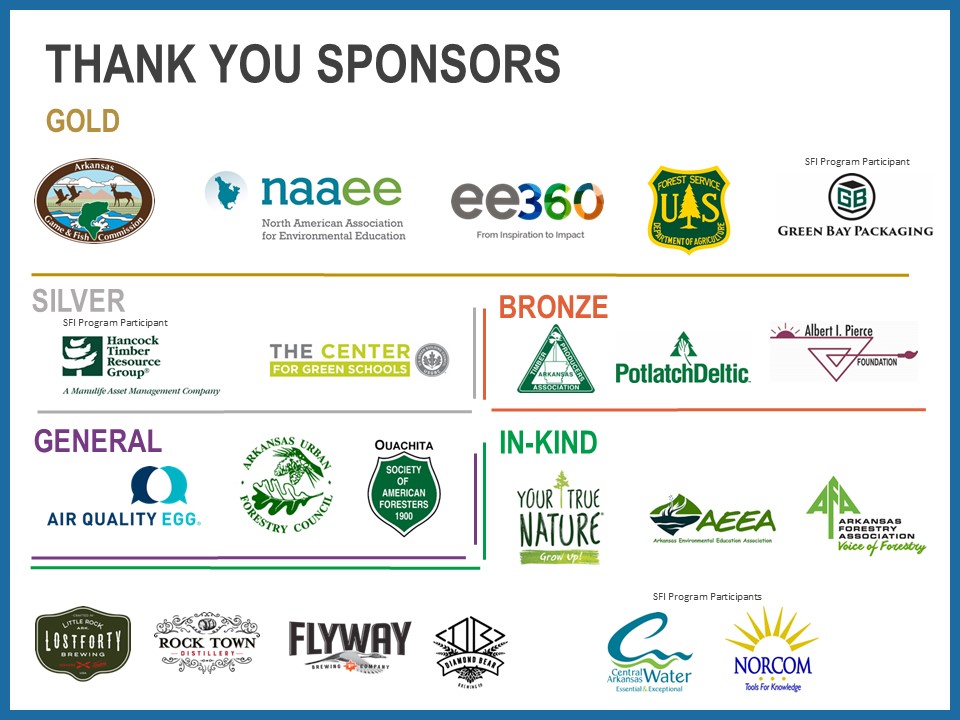
Last But Not Least, ‘Thank You’ Arkansas PLT!
We also especially want to extend our gratitude to the Arkansas PLT team for their hard work, hospitality, and range of events that welcomed us all to “The Natural State.” Not only did they assist with all the logistics, but they added so many special touches that helped us connect with each other and with the local community.
For example, thanks to 125 art class students from Greenbrier High School in Arkansas, everyone left the conference with their own unique hand-painted little rock as a wonderful memory of our time together in Little Rock! Thanks to the students who created these beautiful mementos for our PLT family!

For more photos, see our photo album on PLT’s Facebook page.
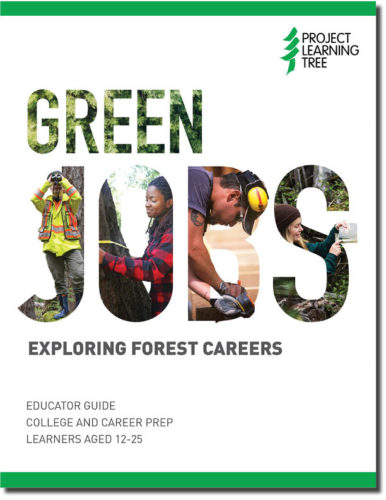 Do your students want to find a job they can be proud of? To feel like they are making a difference in the world? Green jobs are not just in the renewable energy, manufacturing, or technology sectors. Some of the greenest jobs involve forests and Project Learning Tree has a new resource for helping youth ages 12-25 explore green careers in forestry and conservation.
Do your students want to find a job they can be proud of? To feel like they are making a difference in the world? Green jobs are not just in the renewable energy, manufacturing, or technology sectors. Some of the greenest jobs involve forests and Project Learning Tree has a new resource for helping youth ages 12-25 explore green careers in forestry and conservation.

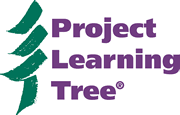
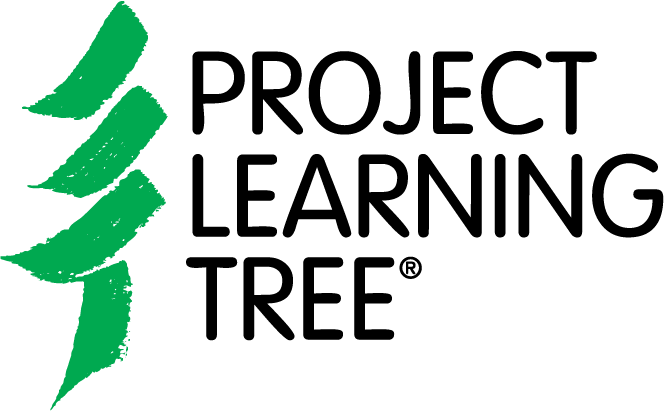




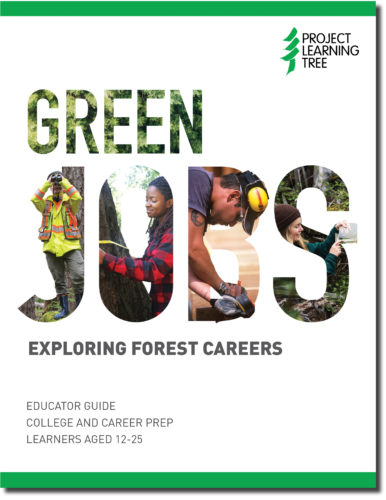 Project Learning Tree (PLT), the award-winning environmental education initiative of the Sustainable Forestry Initiative (SFI), has developed new supplementary education materials to help youth discover careers in sustainable forestry and conservation.
Project Learning Tree (PLT), the award-winning environmental education initiative of the Sustainable Forestry Initiative (SFI), has developed new supplementary education materials to help youth discover careers in sustainable forestry and conservation.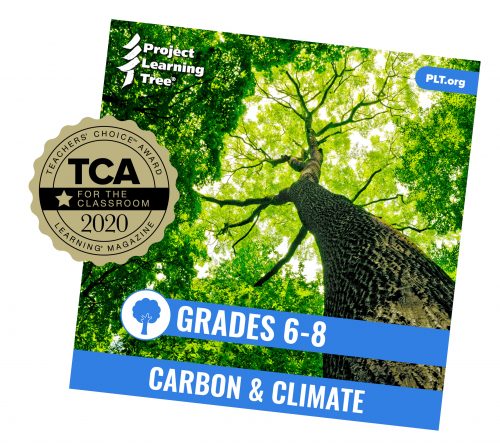 Project Learning Tree’s Carbon & Climate curriculum has been selected a Learning® magazine 2020 Teachers’ ChoiceSM Award for the Classroom winner, earning the seal of approval for outstanding educational value. For 6th-8th grade teachers,
Project Learning Tree’s Carbon & Climate curriculum has been selected a Learning® magazine 2020 Teachers’ ChoiceSM Award for the Classroom winner, earning the seal of approval for outstanding educational value. For 6th-8th grade teachers, 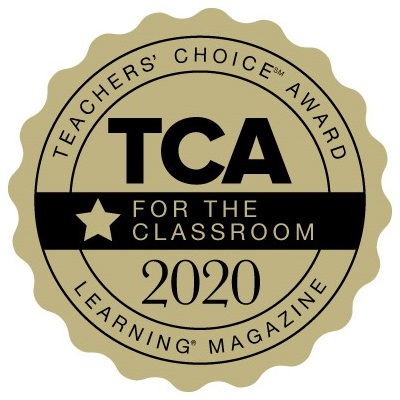
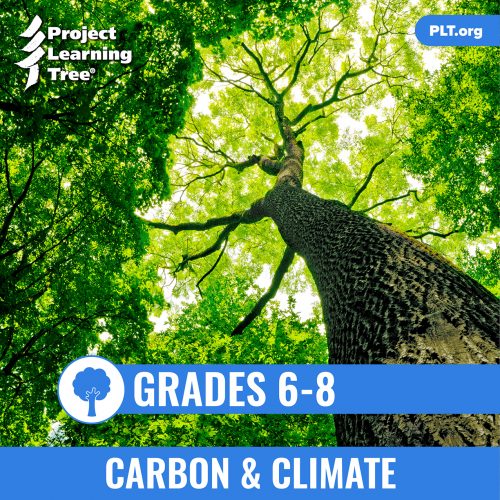 Perhaps more than any other environmental issue, the topic of climate change challenges science teachers to accurately convey data, reveal assumptions, and engage critical-thinking skills. Designed for 6th-8th grade teachers, PLT’s Carbon & Climate e-unit provides activities and resources to help educators introduce students to some of the complex issues involved in climate science and its associated social, political, and environmental challenges.
Perhaps more than any other environmental issue, the topic of climate change challenges science teachers to accurately convey data, reveal assumptions, and engage critical-thinking skills. Designed for 6th-8th grade teachers, PLT’s Carbon & Climate e-unit provides activities and resources to help educators introduce students to some of the complex issues involved in climate science and its associated social, political, and environmental challenges. 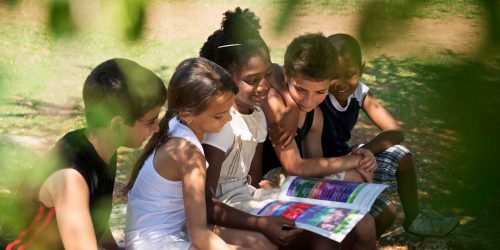
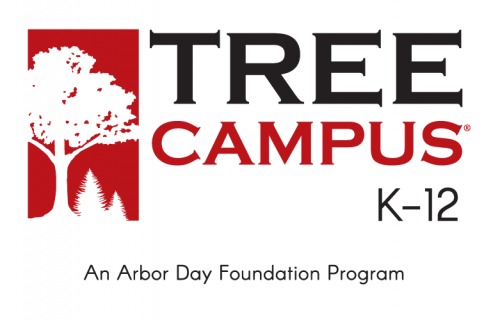
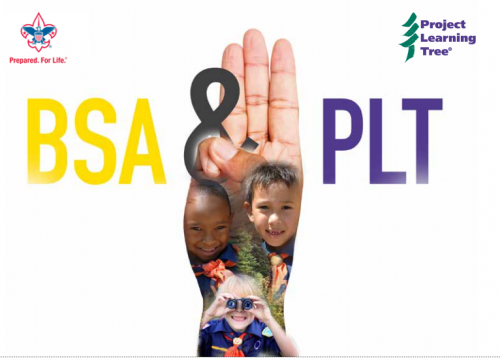 Project Learning Tree recently collaborated with the Boy Scouts of America (BSA) to correlate PLT activities to eight Cub Scout Adventures and six Scouts BSA merit badges. These correlations provide Scout leaders with ideas and hands-on, outdoor activities to help support children, ages 5 to 17, with youth development goals. They also help introduce youth to careers in the outdoors, including jobs in forestry and natural resources conservation.
Project Learning Tree recently collaborated with the Boy Scouts of America (BSA) to correlate PLT activities to eight Cub Scout Adventures and six Scouts BSA merit badges. These correlations provide Scout leaders with ideas and hands-on, outdoor activities to help support children, ages 5 to 17, with youth development goals. They also help introduce youth to careers in the outdoors, including jobs in forestry and natural resources conservation.
 BSA Merit Badges
BSA Merit Badges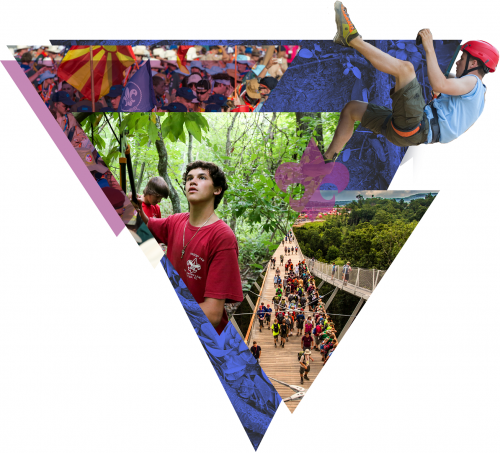
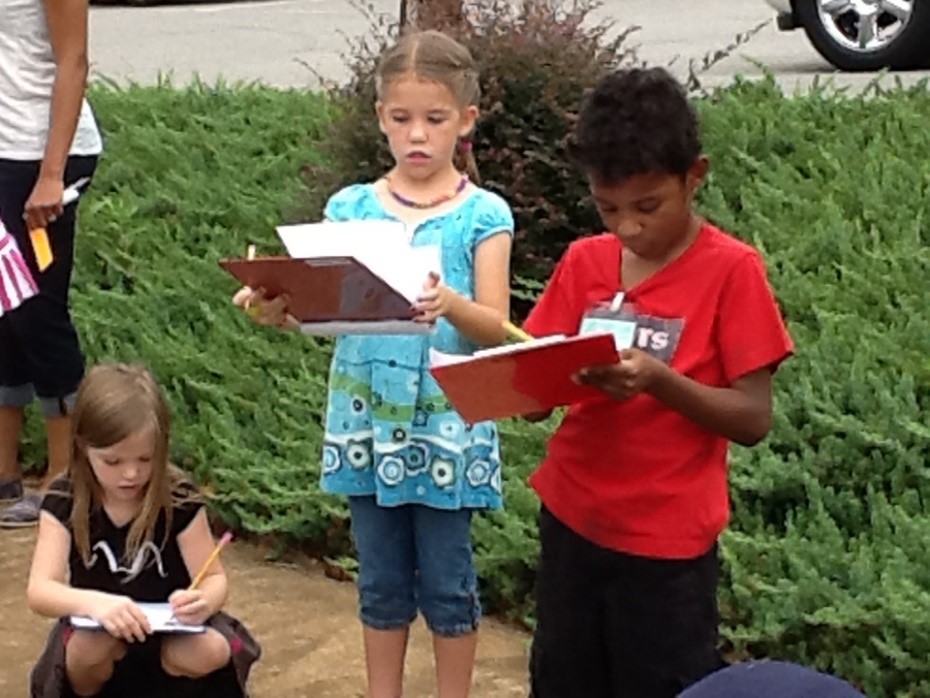
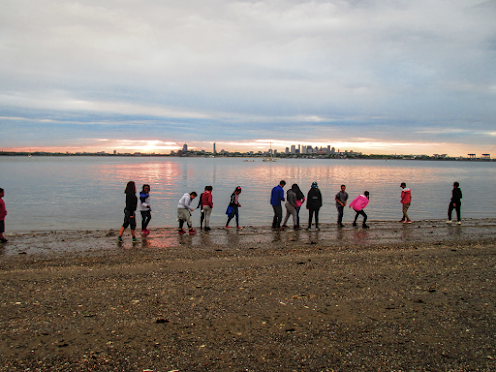


 Michele Snyder, Arkansas Department of Education Public School Program Advisor, Laura Downey, Kansas PLT State Coordinator, Daniel Benavidez, Zuni New Mexico Public School District Superintendent, and Judy Braus, NAAEE Executive Director
Michele Snyder, Arkansas Department of Education Public School Program Advisor, Laura Downey, Kansas PLT State Coordinator, Daniel Benavidez, Zuni New Mexico Public School District Superintendent, and Judy Braus, NAAEE Executive Director


 Stacey McAdoo, Arkansas Teacher of the Year (left); Jacey Tosh with Texas A&M Forest Service (right)
Stacey McAdoo, Arkansas Teacher of the Year (left); Jacey Tosh with Texas A&M Forest Service (right)




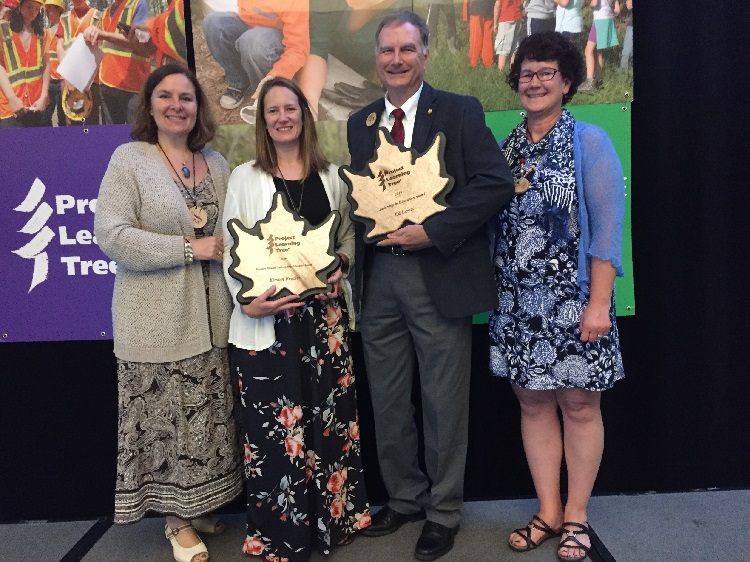
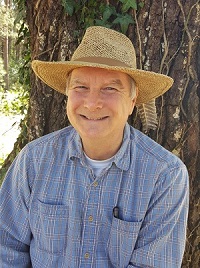 ALABAMA – Ed Lewis
ALABAMA – Ed Lewis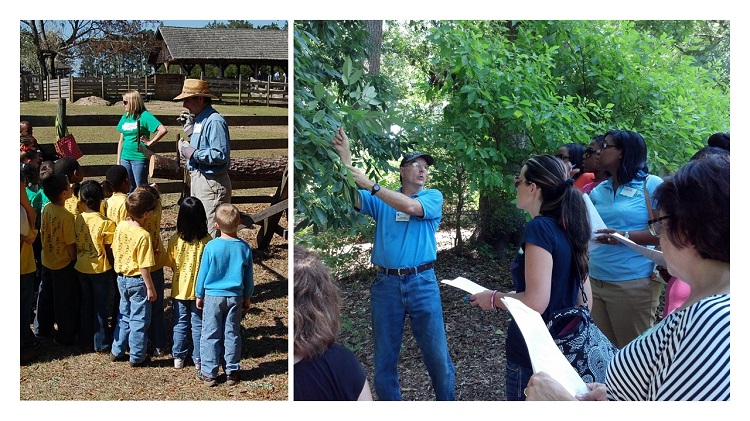
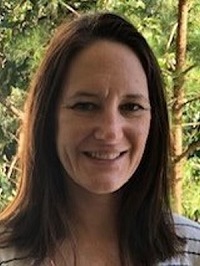 FLORIDA – Kirsten Brazier
FLORIDA – Kirsten Brazier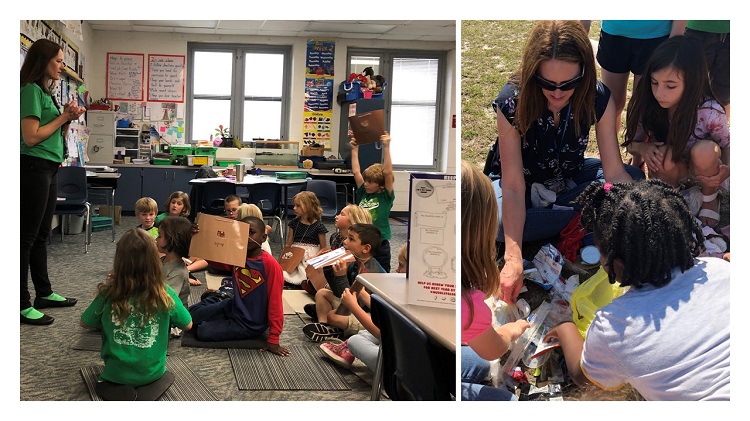 Kirsten also plans and creates service-learning opportunities for students at her school and helps find funding. Students grow vegetables, herbs, and flowers in raised garden beds, they observe monarch caterpillars and butterflies attracted to their butterfly garden, and they set up a school-wide recycling program and participate in Recycle-Bowl, a yearly competition organized by Keep America Beautiful in which students track the amount of trash they recycle in a month.
Kirsten also plans and creates service-learning opportunities for students at her school and helps find funding. Students grow vegetables, herbs, and flowers in raised garden beds, they observe monarch caterpillars and butterflies attracted to their butterfly garden, and they set up a school-wide recycling program and participate in Recycle-Bowl, a yearly competition organized by Keep America Beautiful in which students track the amount of trash they recycle in a month.